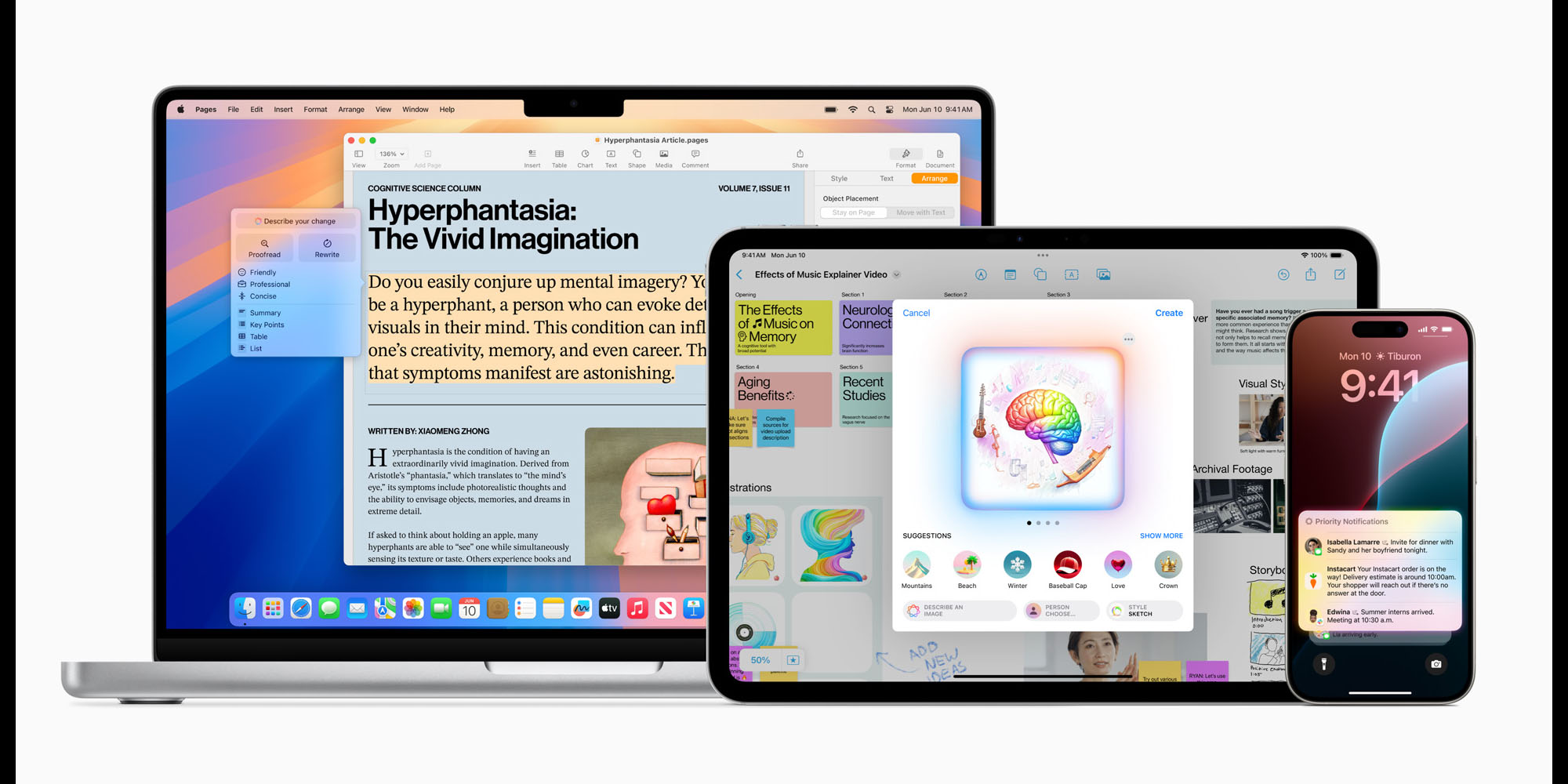
9to5Mac last year found evidence of a new “ComputeModule” device class hidden in the iOS 16.4 beta SDK. At the time, we speculated that it could be either a Raspberry Pi type device. It turns out that Apple’s recently announced Private Cloud Compute (PCC) for processing Apple Intelligence data in the cloud is the ComputeModule we reported on last year.
Apple’s Private Cloud Compute is ComputeModule
At the time, we found references to both ComputeModule13,1 and ComputeModule13,3 in the iOS 16.4 beta files. Now there’s also ComputeModule14,1, which is a server based on the M2 Ultra chip. This is likely the server that Apple is using for its AI features.
Apple Intelligence works with both on-device and online language models. However, to guarantee users’ privacy, Apple has created PCC with its own chips to process requests with end-to-end encryption, so that not even the company has access to this data. Once processing is complete, all data is permanently wiped.
Here’s how Apple describes PCC:
For the first time ever, Private Cloud Compute extends the industry-leading security and privacy of Apple devices into the cloud, making sure that personal user data sent to PCC isn’t accessible to anyone other than the user — not even to Apple. Built with custom Apple silicon and a hardened operating system designed for privacy, we believe PCC is the most advanced security architecture ever deployed for cloud AI compute at scale.
But what about the first ComputeModule devices found last year? Well, we’ve also found more details about them – and they are still being actively used by Apple. However, they run on the base M1 chip. We don’t know for sure what Apple has been using these modules for, but presumably the company can run other non-AI tasks with M1 machines.

Apple’s Security Research blog has more details on how Private Cloud Compute works, and it’s definitely worth a read.
Read also
FTC: We use income earning auto affiliate links. More.





